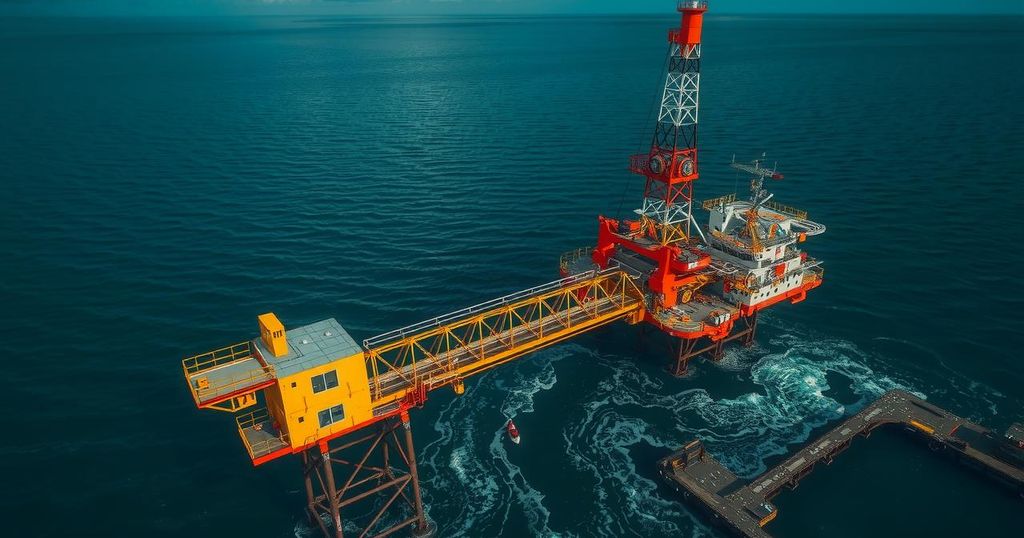Oil Operators in Gulf Evacuate Personnel Ahead of Tropical Storm Rafael
Oil companies in the Gulf of Mexico are evacuating staff ahead of Tropical Storm Rafael, which may threaten significant oil and natural gas production. Major companies like BP, Chevron, Equinor, and Shell are taking precautionary actions as the storm approaches, with potential market implications due to ongoing geopolitical risks.
Oil operators in the Gulf of Mexico (GoM) are taking proactive measures to evacuate personnel in anticipation of Tropical Storm Rafael. Major energy companies, including BP, Chevron, Equinor, and Shell, have begun relocating non-essential staff from offshore platforms while maintaining production levels for the time being. BP is in the process of transferring workers from platforms such as Argos and Thunder Horse, while Chevron has also moved personnel from locations like Big Foot. Shell has preemptively evacuated workers from platforms including Appomattox and Vito, and Equinor has completely halted production as a precautionary measure. Currently, Tropical Storm Rafael is generating winds of up to 60 mph and has the potential to intensify into a hurricane as it approaches the Cayman Islands and Cuba. However, there are indications from the National Hurricane Center that the storm may weaken again prior to its arrival at the Gulf Coast. The implications of Rafael are significant, posing risks to approximately 4.9 million barrels of daily oil production and nearly 6.39 billion cubic feet of natural gas output in the Gulf, as documented by Earth Science Associates. Rafael is notable as the 17th named storm of the Atlantic hurricane season and the 10th since late September, amid predictions of up to 25 storms this year, which may have unprecedented impacts on the oil and gas sector in the United States. The heightened uncertainty from ongoing geopolitical tensions, particularly concerning the U.S. election and instability in the Middle East, is further exacerbated by the storm’s potential impact on oil prices. As a result, West Texas Intermediate (WTI) crude oil traded up 1.54% recently, with benchmarks such as Brent reaching $76.14.
The Gulf of Mexico is a critical region for oil and natural gas production in the United States, with numerous offshore platforms operated by major energy companies. This region is increasingly vulnerable to tropical storms and hurricanes, particularly during the Atlantic hurricane season, which runs from June to November. The increase in named storms poses significant challenges to energy operators as they must balance safety concerns with maintaining production levels. Tropical Storm Rafael highlights these challenges, as energy companies respond by preparing for potential disruptions.
In summary, the evacuation of personnel by major oil companies in the Gulf of Mexico in response to Tropical Storm Rafael illustrates the ongoing challenges faced by the energy sector amid unpredictable weather patterns. As the nation braces for potential production impacts, Rafael’s threat to the Gulf’s oil and gas infrastructure underlines the broader context of market volatility influenced by geopolitical tensions and natural events this hurricane season.
Original Source: oilprice.com




Post Comment